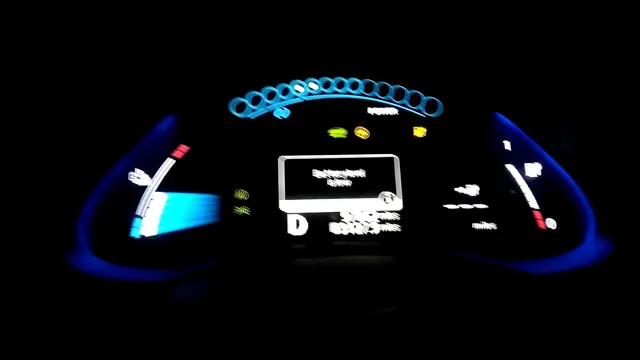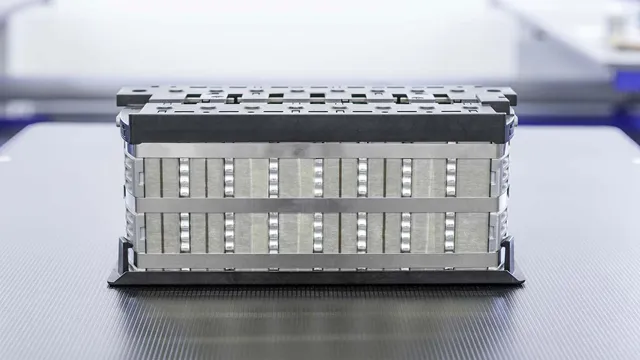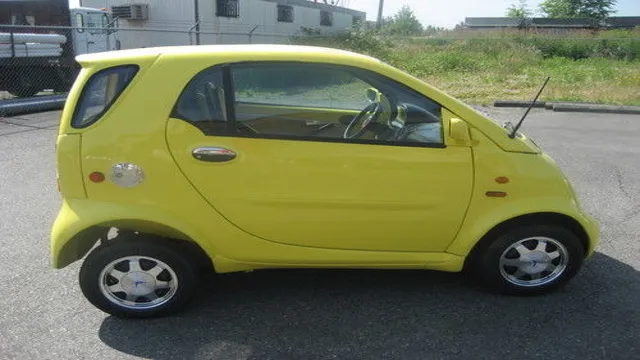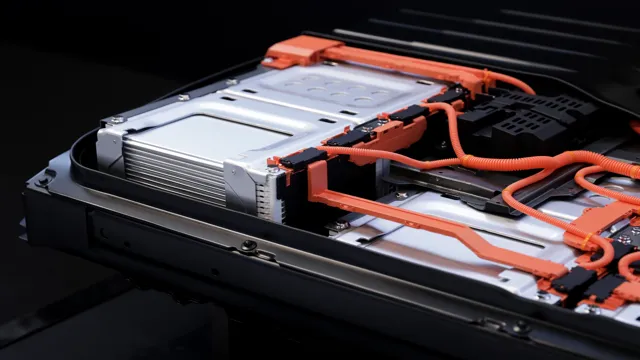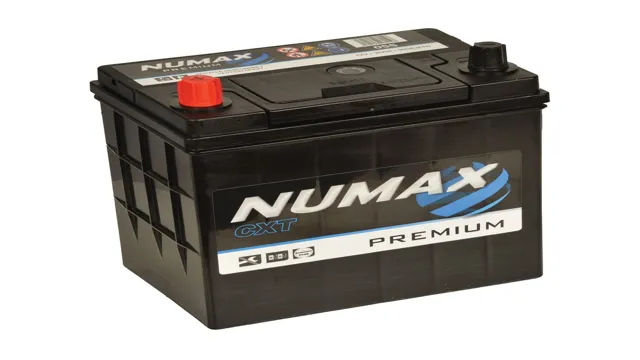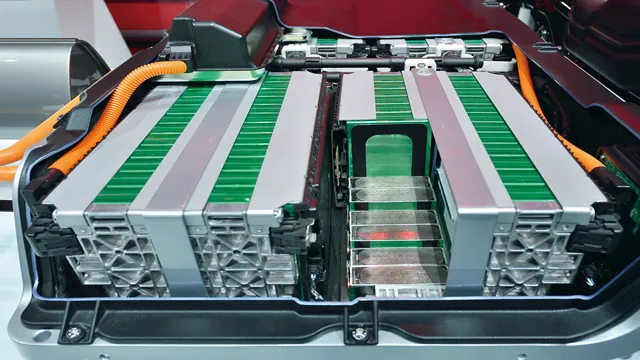Revive, Reuse or Recycle: Sustainable Solutions for Disposing of Electric Car Batteries
As more people switch to electric cars for their daily commute, the disposal of electric car batteries has become a growing concern. While these batteries are designed to last for years, eventually they will need to be replaced. However, disposing of electric car batteries is not as simple as throwing them in the trash.
These batteries contain hazardous materials such as lead and lithium, posing a risk to humans and the environment if not handled properly. In this blog, we will explore the various ways in which electric car batteries can be disposed of safely and responsibly. So, if you’re curious about the proper way to dispose of electric car batteries, read on!
Overview
Disposing of electric car batteries is a critical issue that needs to be addressed in a sustainable manner. With the increasing popularity of electric vehicles, the number of discarded batteries is also surging. These batteries contain toxic chemicals and heavy metals, which can cause serious environmental damage if not disposed of properly.
The good news is that most of the components in electric car batteries can be recycled. Companies that specialize in battery recycling can recover valuable materials like cobalt, nickel, and lithium, which can be reused to produce new batteries. However, recycling alone is not enough to tackle the issue.
The disposal process needs to be environmentally sound, and manufacturers must take their responsibility to ensure proper disposal of the batteries they produce. It is essential to encourage more sustainable practices and foster a circular economy concerning electric car batteries to minimize the environmental impact and promote a greener future for generations to come.
The Environmental Impact of Batteries
Batteries have become an integral part of modern life, powering our devices and vehicles. However, they come with a significant environmental impact. This impact is felt throughout the lifecycle of a battery, from the mining of raw materials to disposal.
The mining of materials such as lithium, cobalt, and nickel required for battery production has led to environmental degradation, including land use changes, water pollution, and soil contamination. Additionally, the manufacturing process of batteries results in carbon emissions, further escalating the impact on the environment. Battery disposal also contributes to the environmental impact, with improper handling leading to leakage of hazardous materials into the soil and water.
Despite the environmental impact, batteries remain essential, and it is crucial to explore ways to minimize their impact on the environment. Recycling programs, sustainable mining practices, and finding alternatives to materials like cobalt and nickel can significantly reduce the impact of batteries on the environment. As consumers, we must also take responsibility for properly disposing of batteries and supporting sustainable practices.

The Importance of Proper Disposal
Proper disposal of waste is essential to ensure a safe and healthy environment for our future generations. The efficient management of waste can prevent pollution, conserve resources, and minimize health risks. It is crucial to dispose of hazardous materials such as batteries, electronic waste, pharmaceuticals, and other toxic substances safely to prevent them from contaminating land and water supplies.
Inappropriate disposal of such substances can cause irreversible damage to our natural ecosystems and harm human health. To avoid adverse environmental consequences, we must adopt responsible waste management practices, such as recycling, composting, and proper disposal methods. It is our responsibility to ensure the proper disposal of waste to minimize the harm to our environment.
Let’s work together to create a cleaner and healthier environment for ourselves and the generations to come.
Options for Disposal
When it comes to disposing of electric car batteries, there are a few options available. While electric car batteries are still usable after they have reached the end of their life in an electric vehicle, they will eventually need to be replaced. Recycling is one option for disposal.
Recycling centers will extract valuable materials from the batteries, including lithium, nickel, and cobalt. These valuable materials can be reused to create new batteries and products, reducing the need for raw materials. Another option is repurposing the batteries for second-life use.
For example, an electric vehicle battery that can no longer function in a car could still be used to store energy for a home or business. However, if recycling or repurposing is not an option, the battery will need to be sent to a licensed hazardous waste disposal facility since they contain materials that are harmful to the environment. All in all, responsibly disposing of electric car batteries is critical to ensure the longevity of the planet and the people who live on it.
Recycling Programs
Recycling programs have become increasingly popular as people become more aware of the need to reduce waste and take care of the environment. There are several options available for disposing of recyclable materials, and it’s important to choose the right one for your needs. One popular option is curbside recycling, where you can place recyclable materials in a designated bin and leave it out for the local waste management company to pick up on a regular basis.
Another option is drop-off recycling, where you take your recyclables to a designated location to be sorted and processed. Some cities also have community recycling events where you can bring your materials to a central location for pickup. Whatever method you choose, make sure you are properly sorting your materials and following any guidelines set by your local waste management company.
By recycling properly, you are helping to reduce the amount of waste in landfills and conserving natural resources, which is good for both the environment and our future.
Manufacturer Take-Back Programs
If you’re looking to dispose of a product, a manufacturer take-back program can provide a great solution. These programs allow customers to return their used products to the manufacturer, who will then take care of the disposal process. This option is particularly helpful for items that can be difficult to recycle or dispose of properly, such as electronics or hazardous materials.
Not only does it ensure responsible disposal, but it also takes the burden off of the consumer to figure out how to properly dispose of their product. So next time you’re ready to get rid of your old laptop or other product, consider looking into a manufacturer take-back program to do your part for the environment.
Certified Disposal Facilities
When it comes to disposing of waste, it’s important to do so responsibly and in a way that’s both safe for the environment and compliant with legal regulations. Fortunately, there are several options available for proper disposal, including certified disposal facilities. These facilities are specifically designed to handle hazardous waste, such as chemicals, batteries, and electronic equipment.
They have specialized equipment and trained personnel who know how to manage these materials safely and efficiently. Plus, using a certified disposal facility ensures that you’re following all relevant laws and regulations for waste disposal. So, if you have hazardous waste to dispose of, consider using a certified facility rather than simply throwing it in the trash or dumping it down the drain.
By doing so, you’ll be doing your part to protect the environment and the health of those around you.
Safety Considerations
Disposing of electric car batteries may seem like a simple task, but there are safety considerations that need to be taken into account. These batteries contain toxic chemicals, such as lead and lithium, that can harm the environment if not disposed of properly. One option is to recycle the batteries, which can recover valuable materials and reduce the environmental impact.
However, it’s important to ensure that the recycling facility is certified and follows proper safety procedures. Another option is to contact the manufacturer or a licensed hazardous waste disposal service to properly dispose of the battery. It’s important to never throw an electric car battery in the trash or attempt to disassemble it yourself, as this can lead to serious injury or fire.
Always follow proper safety protocols and take advantage of the available resources to dispose of electric car batteries in a safe and responsible manner.
Handling Tips for Used Batteries
When it comes to handling used batteries, safety should be your top priority. Used batteries can be hazardous and if not handled properly, they can emit toxic fumes, cause fires and even explode. To ensure safety, it is important to always wear protective gear, such as gloves and goggles, when handling used batteries.
Also, never mix different types of batteries or old and new batteries together. It is crucial to store used batteries in a cool and dry place, away from children and pets. In the event of a leak or damage to a used battery, it is advisable to only handle it with protective gear and dispose of it properly at a recycling center.
By following these safety considerations, you can avoid any hazards and ensure the proper handling of used batteries.
Risks of Improper Disposal
When it comes to improper disposal of waste, the risks to safety cannot be ignored. Hazardous materials, such as chemicals and electronics, need to be handled with care to prevent harm to humans and the environment. In addition, improperly disposing of items like needles or broken glass can create physical hazards for waste management workers.
Even food waste can pose a risk if not disposed of properly, as it can attract pests and create unsanitary conditions. To avoid these safety risks, it’s important to follow proper disposal guidelines and take the time to identify and separate any hazardous materials before disposing of them. By doing so, we can help ensure the safety of ourselves, those around us, and the planet as a whole.
Conclusion
When it comes to disposing of electric car batteries, we must be mindful of the environmental impact and seek innovative solutions. After all, we don’t want to trade one problem for another. Fortunately, technological advancements are enabling us to turn these batteries into valuable resources that can power homes and businesses.
So let’s embrace the challenge and transform our electric car batteries into a brighter, cleaner future. Taking the road less traveled can lead us to a brighter tomorrow!”
FAQs
Why is it important to properly dispose of electric car batteries?
It is important to properly dispose of electric car batteries because they contain hazardous materials that can harm the environment if not handled correctly. These materials include heavy metals such as lead, nickel, and cadmium, as well as lithium, which can catch fire if not handled properly.
How are electric car batteries recycled?
Electric car batteries can be recycled by disassembling them and extracting the valuable metals and materials, such as lithium, cobalt, and nickel. These materials are then processed and used to make new batteries or other products.
What are the consequences of not properly disposing of electric car batteries?
Not properly disposing of electric car batteries can lead to environmental pollution and health hazards for people and wildlife. The hazardous materials in the batteries can contaminate soil and water, and the lithium ion in the batteries can cause fires if not handled properly.
Can electric car batteries be reused?
Yes, electric car batteries can be reused in a process called “second-life”. After they are no longer suitable for use in cars, they can still have up to 70% of their original capacity and be repurposed for other applications, such as energy storage for homes or businesses.
